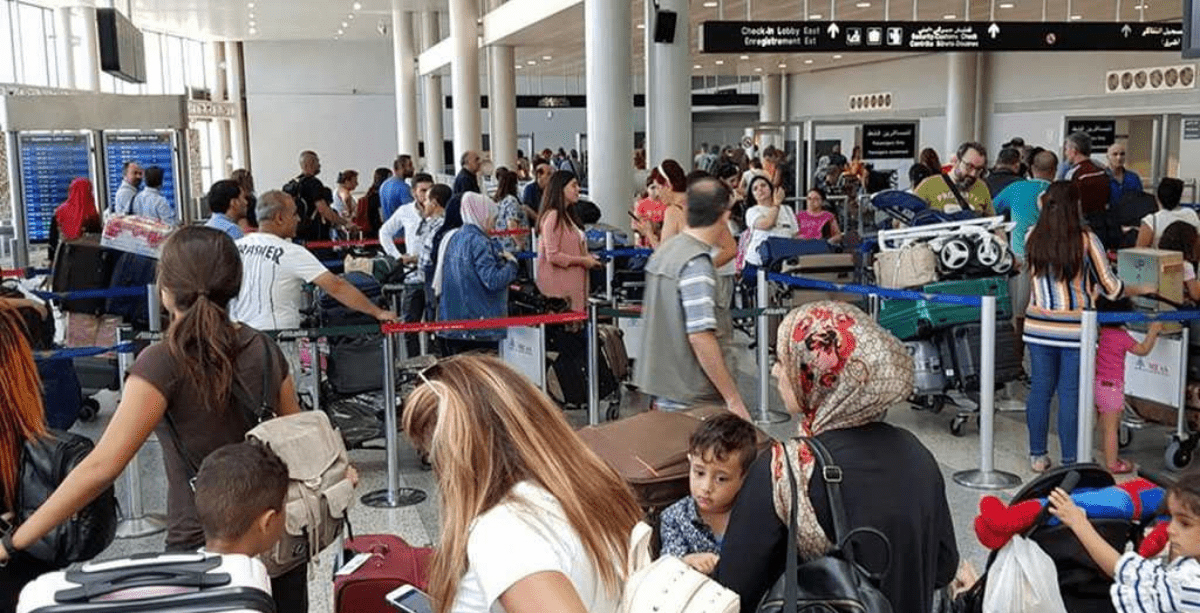A web-based image.
Lebanon's problems are too many to list, much less analyze their causes and remedies. With hardly any sector left intact, even the army and security forces, which are considered the last hope, now depend on charitable donations from regional and international donors. But Lebanon's crises go beyond the immediate needs of health care and education. They touch the very pillars that hold the nation together.
The agony of Lebanon goes beyond social and economic needs. Some observers even question why people do not take their anger to the streets when their hardships exceed those that led to the French and Bolshevik revolutions. Some experts explain this Lebanese inertia from psychological perspectives.
So far, emigration and diaspora remittances have been critical factors in mitigating the consequences of the crisis, delaying social explosion in the country. But regardless of how long this delay would last, immigration as a solution is a double-edged sword. On one hand, it provides some Lebanese a means of survival. However, the circumstances of their departure are unlike the earlier waves of immigration in the 19th and the mid to late 20th centuries. The old demographic balance that endured in the past will not likely reproduce itself in the age of Hezbollah and its allies. Immigration now would threaten the pillars that held Lebanon together in the past.
The Lebanese state is now on its decomposition, and with it, the Lebanon that we all used to know.
Lebanon’s descent into crisis – with few signs of reprieve – ushers in warnings of a mass exodus from the country, the third major one in Lebanon’s history. Crisis Observatory, a research program launched by the American University of Beirut (AUB), published a recent report citing a significant rise in emigration from the country since 2019, compounded by an economic crisis that has seen the Lebanese lira lose about 90% of its value. The mass exodus will be the third large wave, with the first from the 19th century stretching to the First World War (1865-1916), which saw the emigration of about 330,000 people from Mount Lebanon, and the second during the Lebanese Civil War (1975-1990), which led about 990,000 to flee from the country.
The report notes several worrying indicators of the wave of mass emigration. According to the Arab Youth Opinion Survey in 2020, 77% of young people have considered emigrating, the highest rate of any Arab country. Lebanese youth results are witnessing an overwhelming decline in job opportunities. The World Bank estimates that one out of every five has lost their jobs since 2019, and studies show that 61% of companies in Lebanon have reduced their permanent staff members by 43%. It also estimates that returning to the levels of GDP that the country had in 2017 will take anywhere from 12 to 19 years.
Lebanon also lacks specialists and professionals, primarily within the healthcare and education sectors, as doctors and teachers migrate to seek better job opportunities. The Nurses Syndicate estimated 1,600 nurses have emigrated since 2019, and at the AUB, 15% of the educational body have left the country. The report notes that other influences, like the demand for professionals from advanced countries facing a decline in population growth rates and high proportions of elderly to youth, will encourage more drain.
The third indicator is the anticipation that the crisis in Lebanon will be prolonged, a fear that is not unfounded, considering the country has yet to designate a cabinet after almost a year-long impasse. The government’s failure to address the current crises will push many into leaving the country searching for safety, security, and livelihoods — an exodus that may push Lebanon further to the brink as the country depends on its people to rebuild the state, society, and the economy. In the words of the Middle East Eye, “The successes of the Lebanese in the countries of the diaspora have always been a material in building the narrative of “the good Lebanese,” but it covers the dark side of famine, wars, and destruction in their mother country.”
Copyright © 2021 by Al Jadid

